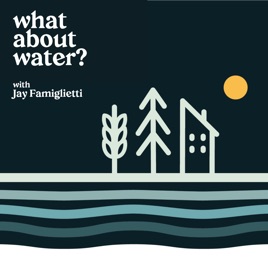
Advertise on podcast: What About Water? with Jay Famiglietti
Rating
4.9 from
Country
This podcast has
65 episodes
Language
Publisher
Explicit
No
Date created
2019/11/01
Average duration
34 min.
Release period
27 days
Description
"What About Water" connects water science with the stories that bring about solutions, adaptations & actions for the world's water realities. Hosted by Jay Famiglietti and presented by the Global Institute for Water Security and The Walrus Lab. Formerly known as "Let's Talk About Water".
Podcast episodes
Check latest episodes from What About Water? with Jay Famiglietti podcast
Drilling Deeper Won't Fix This
2023/08/16
People in the lower Colorado River basin are now witnessing drastic cuts to their allotments. In many cases, developers find alternate sources of water by drilling into underground aquifers. But in places like Pinal County, Arizona, that groundwater is already becoming scarce. We hear from Stephen Q. Miller, who sits on both the Pinal County Board of Supervisors and the board for the Central Arizona Pipeline. Without sufficient water for crops, and facing some of the highest temperatures on record, he says farmers in his area will fallow up to 70 per cent of their land this year.
As Phoenix and its outlying suburbs start limiting development because of water shortages, those who stay put rely increasingly on wells and groundwater.
Arizona State University professor Kathryn Sorensen explains why consuming water from deeper wells is one solution – but it’s not ideal. The ancient freshwater underneath much of Arizona will never be replenished during our lifetimes. With high-tech cloud computing centers and some of the world’s biggest microchip manufacturers expanding their reach — and water use — we look at the desert future of the southwest.
With increasing water scarcity across the lower Colorado River basin states, we look at the technology of the future – and the role of cloud computing centers. How much water do they consume, and what does that mean for people in water-stressed areas? Amazon Web Services has set a goal to become water-positive by the year 2030, and we hear how the company is recycling and re-using water, with Will Hewes, AWS’ Global Lead on Water Sustainability.
Outside Phoenix, Intel Corporation has been a presence for more than four decades, with two recent expansions of its 700-acre campus in the desert. Those expansions allow Intel to manufacture more of the microchips that we rely on in modern life, powering everything from cell phones to automobiles. We hear from Intel vice-president and chief sustainability officer Todd Brady. He says the public-private partnership Intel struck years ago with the city of Chandler, AZ means a more sustainable, predictable supply of recycled water.
Water scarcity is also having a profound effect on the desert south’s political landscape. In this episode, we hear from Kathleen Ferris, a senior research fellow at ASU’s Kyl Center for Water Policy, and we check in with Patrick Adams, water policy advisor to Arizona Governor Katie Hobbs.
Our last word in this episode goes to the University of Arizona’s Kathy Jacobs, director of the Center for Climate Adaptation Science and Solutions.
more
The Colorado River's Alfalfa Problem
2023/07/14
The meat and dairy industries are some of the biggest water users in the American West, thanks to one of cows' favorite foods – alfalfa. As aridification continues across the American southwest, water is becoming far more scarce on the Colorado River. A critical source of water for roughly 40 million Americans, we look at why so much of the Colorado River's freshwater goes toward growing water-intensive hay crops, and at what can be done to significantly scale back consumptive use in the future.
In this episode, we hear from people who've traveled from around the world to see the Hoover Dam. With white bathtub rings marking a long-past high water mark, Lake Mead is severely overdrawn. Together with Lake Powell, America's two biggest man-made reservoirs are losing water faster than ever as cities, towns and farms withdraw their legal allocations.
To find out why farmers in this region keep growing such water-intensive crops, our producer Megan Myscofski meets up with alfalfa farmer Larry Cox. They tour his farmland near Brawley, in California's Imperial Valley. With no potable water, Cox's home, farm and livelihood depend entirely on his farmland's senior water rights from the Colorado River. Leaving the fields fallow is not an option.
Jay then sits down with Dan Putnam, an expert on alfalfa and other forage crops at the University of California, Davis, and Sarah Porter, director of Arizona State University's Kyl Center for Water Policy. They discuss why it's so difficult legally and economically to uproot water-intensive crops such as alfalfa, and they bring up solutions to get ‘more crop out of each drop’. They also discuss what cities and urban areas will have to do, to ensure there's enough water to support everyone in the lower Colorado River basin.
more
World Water Day 2023 with Autumn Peltier
2023/03/22
When Autumn Peltier was eight, she learned the tap water on a neighbouring reserve wasn’t safe to drink, or even to use for hand-washing. That injustice triggered her decade-long advocacy campaign for safe drinking water. She made headlines as a 12 year-old, admonishing Prime Minister Justin Trudeau at an Assembly of First Nations event for the choices his government had made for her people.
In this bonus episode for World Water Day 2023, Peltier and Jay discuss the way her life shifted, as she started campaigning for clean water. Peltier also shares what it was like to shoot her documentary The Water Walker, and lets us in on her plans for the future now that she’s finished high school.
On a day devoted to improving the way we manage, consume, and use water, the message is ‘Be The Change’ – something Peltier takes to heart. Two billion people still live without clean water, and the United Nations says member countries have fallen behind on their goal to bring everyone safe water and sanitation by the year 2030.
“The message is so much more powerful and so much more stronger when it's coming from a young person,” said Peltier, the chief water commissioner for the Anishinabek Nation. “That's when you know something is wrong, and something has to be done.”
more
Will Sarni: Can We Tech Our Way Out of Wicked Water Problems?
2023/03/01
Can we really “tech” our way out of freshwater shortages, scarcity, and pollution?
In our Season 4 finale, we’re asking the big question of the season – will new water technology be enough to solve wicked water problems? Will Sarni joins Jay for a look back at the bright ideas and inventions we’ve heard about this year, sharing his view on technology’s ability to solve problems around water quality and scarcity.
Jay and Will discuss what a “disruptor” like Uber could do for the water sector and what it will take to get the public sector to respond to innovation. And if you’ve ever wondered why piping water from a wet part of the country to areas hit by drought is a hot-button issue, you’ll want to stick around for our last ‘Ask Jay’ segment of the season.
Will Sarni is the CEO of Water Foundry and the founder and general partner of Water Foundry Ventures, a technology venture fund focused on addressing water scarcity, quality and equitable access to water. Will is a podcaster, an internationally recognized thought leader on water strategy and innovation, and the author of numerous books. You can check out his children’s book, Water, I Wonder here.
more
What Lurks Beneath: How Robots Can Save City Plumbing with Vanessa Speight
2023/02/15
In this episode, we’re going underground, undersea and into your water and sewer pipelines with science fiction’s favorite problem-solvers…robots!
Jay sits down with Vanessa Speight, a professor of Integrated Water Systems at the University of Sheffield, to learn how new, spider-like robots have the potential to locate and fix leaks in aging water pipes.
Jay and Vanessa discuss when we might actually see these pipe-traveling bots in action and what they can realistically do for developing nations, where drinking water loss can be as much as 70 per cent due to aging and unmaintained systems.
In our Last Word, professor Lucian Busoniu tells us about SeaClear, a project funded by the European Union, building the first fleet of autonomous robots to collect litter from the ocean floor.
more
An AI Fix for Aging Water Systems with Seyi Fabode
2023/02/01
On this episode of What About Water? an entrepreneur in Austin, Texas turns his dishwasher sensor into a tech startup that’s feeding water utilities snapshots of their water quality in real time.
Jay sits down with Seyi Fabode, the CEO and co-founder of Varuna, to discuss how his company’s cloud-based software is helping cities keep track of their drinking water quality by the minute, allowing them to respond to spills, contamination, and fluctuations before it’s too late.
Jay and Seyi dream up a new tech idea together and trace Seyi’s entrepreneurial roots from his childhood in Nigeria to his post-grad in the UK. They discuss the $100,000 investment from the Google for Startups Black Founder Fund that opened new doors for Varuna, and what needs to change to get more black-owned businesses like Seyi’s off the ground.
At the end of the episode Jay answers a few questions about the Tri-State Water Wars and water privatization from our listener Mark, who’s based in Atlanta, Georgia.
Got a question for Jay? Write to him at ideas@whataboutwater.org and you may hear your question in an upcoming episode. Voice memos like Mark’s are also welcome!
more
Chemical Cocktails: What’s in our Groundwater? with John Cherry
2023/01/18
If it’s not stuck in glaciers or polar ice, 99 per cent of the world’s freshwater is groundwater. Water underground supplies nearly half of the world’s drinking water. But what happens when dangerous chemicals and waste – polyfluoroalkyl substances (PFAS), oil, gasoline and road salts – percolate down into that supply?
On this episode of What About Water? Jay sits down with the father of contaminant hydrogeology, Dr. John Cherry, to talk about the water under our feet, and how we can better monitor it. In the 1970s, Cherry wrote the foundational textbook on groundwater with his colleague, Al Freeze. And we hear how one of his students paved the path for his successful career in the field.
To find out what’s actually being done to stop industry polluters from dispersing PFAS chemicals into our waterways, producer Erin Stephens speaks with Marc Yaggi, CEO of the global nonprofit Waterkeeper Alliance. Yaggi shares what Waterkeeper is advocating for in Congress, brands eliminating PFAS from their production lines, and how everyone can get involved in the effort to get these “forever chemicals” out of our rivers. Check out their surface water quality survey here to learn more.
Got a question for Jay? Write to us at ideas@whataboutwater.org and you may hear your question in an upcoming episode. Voice memos are also welcome!
more
Dirty Laundry: Water and the World of Fast Fashion
2022/12/21
Call the fashion police! In this special holiday edition of What About Water? we dive into the apparel industry’s dirty secret: its water use. Behind oil and gas, fashion is the single most polluting industry on the planet. It accounts for 8 per cent of all carbon emissions and 20 per cent of global wastewater.
We start by catching up with shoppers at the Picker’s Hullabaloo Flea Market in Charleston, South Carolina. They tell us about the clothes on their wish lists this year and why they choose to shop second-hand.
Jay talks water overuse and about changes for garment designers and manufacturers with Andrea Kennedy, Vice-President of Sustainability for Material Exchange. From Shein to Patagonia, Jay and Andrea dive into the pollution “fast fashion” creates, as well as the certifications and brands you can look out for when you’re trying to shop more sustainably.
Charleston vendor Madeline of Gaia’s Hearth shares the secrets to her natural dyeing process: backyard plants, recycled water and a giant lobster pot. We also turn to two technologies that are paving the way for sustainable textile production at-scale.
Ernst Siewers, Chief Technology Officer of DyeCoo, tells us about his groundbreaking invention - the world’s first waterless textile dyeing machine. We also hear from Shahriare Mahmood, Chief Sustainability Officer for Spinnova. This Finnish company is harnessing the secrets of spiders to spin natural textile fibres out of wood pulp without using any harmful chemicals. This process uses minimal water and creates zero waste.
That’s it from us at What About Water? for 2022! We’re taking a holiday break, but we’ll be back January 18 with some exciting news and a brand new episode for you. Got ideas for the show? Something you’d like to ask Jay? Write to us or send a voice memo to ideas@whataboutwater.org.
more
Into Thin Air: A Smarter Way to Water Crops, with A.J. Purdy
2022/12/07
How can we measure water when it disappears into thin air?
On this episode of What About Water? we’re looking at evapotranspiration, or “ET” for short. It’s the combination of water evaporating from the soil, combined with the measure of water transpiring through crops’ leaves. Accounting for this water loss helps farmers know exactly how much water they should apply across their fields, and new agricultural technologies and satellites are making it much easier.
Jay sits down with California State University at Monterrey Bay Senior Research Scientist – and former student – A.J. Purdy, whose doctoral thesis looked at the advancement and applications of satellite-derived ET algorithms.
We also hear what this looks like in real life, with Brett Baker, a sixth-generation California pear farmer and lawyer. With the ever-present risk of flood on his family’s land in the Sacramento-San Joaquin River Delta, Baker explains how OpenET is helping farmers like him and his father take better measurements of consumptive use.
Robyn Grimm, Interim Director of OpenET, tells us how this open-source platform is making big waves.
more
Submerged: Indigenous Communities and Mega-Hydro Projects
2022/11/23
In the quest to find clean, renewable sources of energy, we turn to a familiar method: hydroelectricity. Today, the ancient method of harnessing the power of flowing water is hitting enormous new heights.
Hydroelectric dams are some of the biggest human-made structures in the world. As humans dam more and more rivers, the scale and sheer size of these structures continues to grow.
But in trying to meet our future electrical demand, are we pursuing a technology that is harming communities, rivers and the environment?
In our first-ever documentary “Submerged”, we hear the different ways Indigenous communities bear the brunt of mega hydroelectric projects. What happens when land is flooded, waterways diverted, and dangerous neurotoxins like methylmercury are released?
Featuring Inuk Labrador Land Protector Amy Norman and Aimée Craft, co-editor of In Our Backyard: Keeyask and the Legacy of Hydroelectric Development, the documentary by Farha Akhtar gives us a first-hand and insightful account of the long-lasting legacies created by hydroelectric projects.
Daniel Macfarlane then shares his perspective on the outsized environmental effects of super-sized hydroelectric projects. The asssociate professor of Environmental and Sustainability Studies at Western Michigan University sits down with Jay to discuss what actually happens when a free-flowing river is turned into a lake – from changes in species, to changes in local climates. They also discuss “hydraulic imperialism” and the colonial subjugation of Indigenous people and land.
The Canadian registered charity Raven Trust weighs in on its work supporting Indigenous communities pursuing the often-expensive and painful process of challenging large-scale dams and developments in court.
We round out the episode with the moving song “A Thousand Years” by Silver Wolf Band, a four piece Indigenous folk-rock band from Labrador, Canada.
This documentary and episode of What About Water? is supported by the Uproot Project, which is operationally and financially supported by Grist, its founding partner. Uproot supports journalists of colour who are underrepresented in the journalism industry, to help them tell stories like this one.
more
Field Smarts: Protecting Farmers’ Wallets and Our Water, with Bruno Basso
2022/11/09
It’s estimated that by 2050, we’ll have over 9 billion people on earth. To feed everyone, we will need to produce 60 per cent more food - and we'll need to grow it using less water.
On this episode of What About Water? we’re looking at new technology that can make that shift possible. Jay sits down with colleague and friend Bruno Basso, an agro-ecosystem scientist at Michigan State University and the co-founder and chief scientist of CIBO Technologies.
Basso walks through the remote sensing technology, artificial intelligence, and process-based models farmers can use to optimize their yield - and environmental outcomes - using more precise water and fertilizer inputs.
In the Last Word we look at one of the most impactful inventions for precision agriculture: drip irrigation. John Farner, Chief Sustainability Officer for Netafim, explains how this low-tech innovation is helping farmers around the globe grow higher quality crops with less water.
We also dive into three ‘Ask Jay’ questions. You can check out the LA Times article Jay mentions here.
And if you have a question about water for Jay, let us know who you are, what’s on your mind, and where you’re based – by writing to ideas@whataboutwater.org. We also like voice memos!
more
Under the Sea: Hidden Freshwater Reserves with Brandon Dugan
2022/10/26
By 2025, experts predict over half the world’s population will live in water-stressed areas. With a number of our freshwater resources on land receding, is it time to look to the ocean - or, rather, underneath it for fresh water?
Jay sits down with Brandon Dugan, the Associate Department Head and Baker Hughes Chair in the Department of Geophysics at the Colorado School of Mines, to find out.
Brandon Dugan tells us about an aquifer off the coast of New Jersey that could provide access to freshwater – if we dig deep enough. Jay taps into the advanced drilling technology Dugan and other researchers use to access these hidden freshwater reserves and assess them as a viable resource.
The find raises questions about water ownership and governance in uncharted territory, along with the need to value offshore water as much as we value offshore oil and gas.
At the tail end of this episode, our producer Erin Stephens returns with our first ‘Ask Jay’ segment.
Do you have a question about water for Jay? Let us know who you are, what’s on your mind, and where you’re based – by writing to ideas@whataboutwater.org. Voice memos are also welcome.
more
Podcast reviews
Read What About Water? with Jay Famiglietti podcast reviews
findmeajobplz
2020/12/03
talk about edutainment
okay, firstly i MUST shout out that opening music track. i never thought i would be getting so PUMPED to be talking about water, but that track really...
more
ian f wren
2020/02/23
Making water fun again
The ‘delightfully glum’ Jay Famiglietti and his team do a great job interviewing a diverse set of water experts - bringing optimism to otherwise drear...
more
Podcast sponsorship advertising
Start advertising on What About Water? with Jay Famiglietti & sponsor relevant audience podcasts
You may also like these earth sciences Podcasts
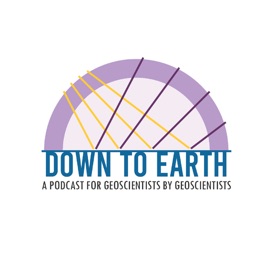
5
4
46
Down To Earth: A podcast for Geoscientists by Geoscientist
grssieee
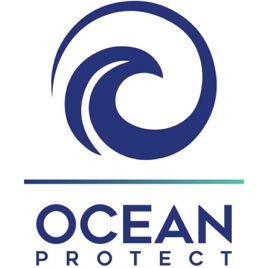
5
2
159
Ocean Protect Podcast
Ocean Protect
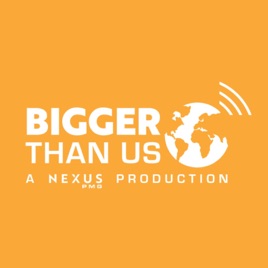
5
42
254
Bigger Than Us
Nexus PMG
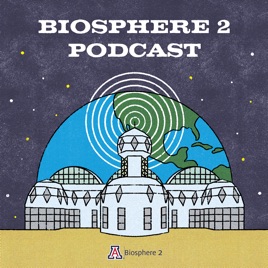
5
12
24
Biosphere 2 Podcast
Biosphere 2 University of Arizona
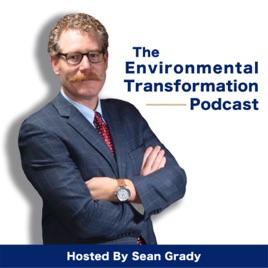
4.5
24
83
The Environmental Transformation Podcast
Sean Grady
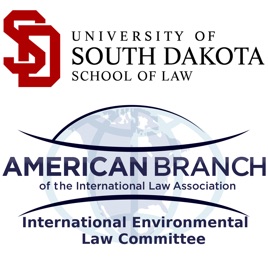
5
2
27
The Global Energy & Environmental Law Podcast
The International Environmental Law Committee of the American Branch of the International Law Association

5
8
29
Ryzzun Energy
Luis Angel | Ryzzun
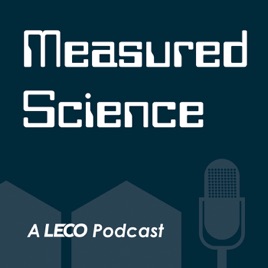
5
2
7
Measured Science
LECO Corporation
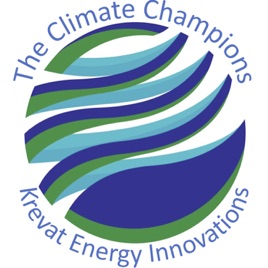
5
36
100
The Climate Champions
Lee Krevat

5
2
33
Rock Logic with Sean Kenny
Rock Logic with Sean Kenny



